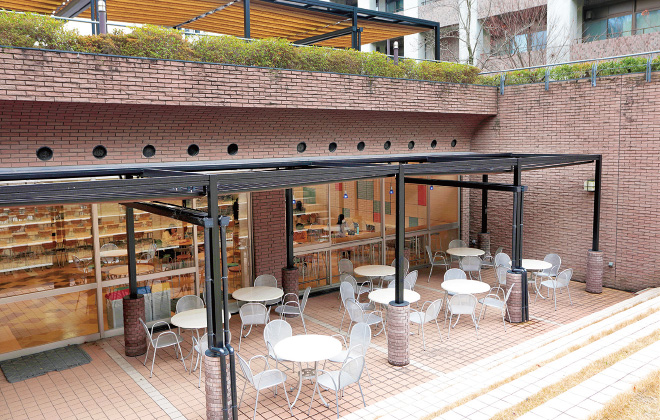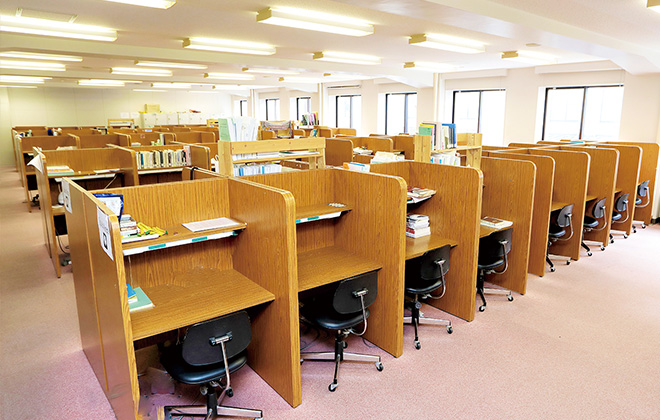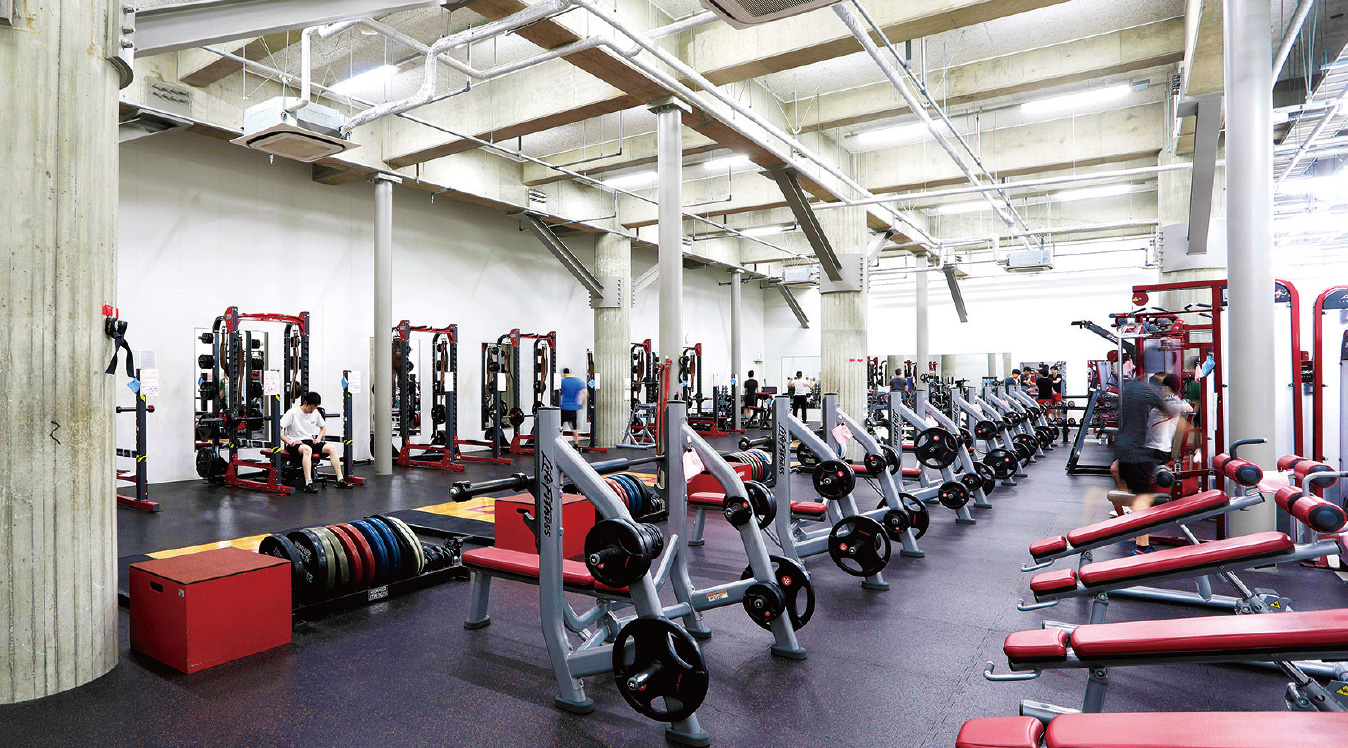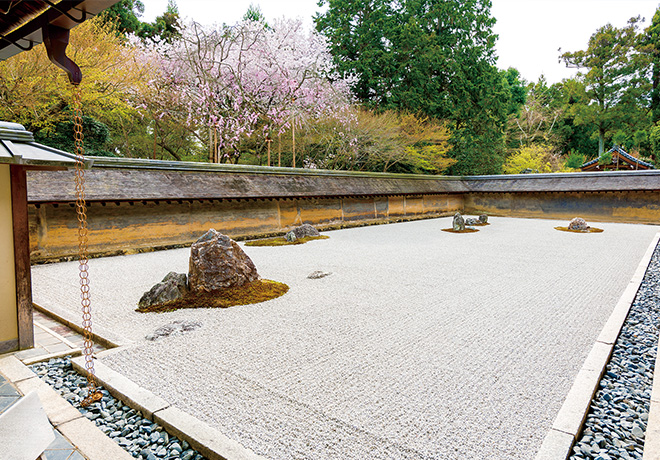Learn in the world
Research Exchange with International Students on a Daily Basis
Student Life in Kyoto
Ritsumeikan University’s Graduate School of International Relations is located on the Kinugasa Campus, where various graduate schools of humanities and social sciences gather. The Kinugasa Campus is located in the northern part of Kyoto City, where the history and culture of the ancient capital Kyoto are alive. Located within cycling distance from the campus are the UNESCO world heritage Buddhist temples such as Kinkaku-ji, Ryōan-ji, and Ninna-ji, as well as famous shrines such as Kitano Tenmangu shrine, which enshrines the “Shinto deity of scholarship”, an important deity for students. On the other hand, the Kinugasa Campus attracts students with diverse backgrounds from all over the world who are eager to experience life in Japan and Kyoto. In particular, the Graduate School of International Relations, the first graduate school of international relations established in West Japan in 1992, accommodates an outstandingly internationalized research environment where students can exchange information and views with each other on various international issues such as security, development and environment, and culture and society. Around the campus, students can learn about traditional Japanese culture through experiences such as tea, pottery and Zen meditation. On the campus, under the guidance of the faculty staff who have rich international experiences, students will encourage each other in doing research on cutting-edge international issues. How could you turn down such wonderful opportunities? We look forward to supporting your graduate studies!


 All students are not only allowed to use our Research Room, but the gym on campus with the best cutting edge equipment for free!
All students are not only allowed to use our Research Room, but the gym on campus with the best cutting edge equipment for free!
Student Voice
- Being able to study at a campus in the heart of Kyoto city is a major benefit, as the quality of student life isn’t just determined by your classes. The campus itself is also wide, open and beautiful, creating a relaxing and engaging environment for study.
- The campus facilities were perfectly adapted to my research needs. It was also interesting to get introduced to different cultures through my fellow international students.
Campus Location – Kyoto City
Kyoto City, where Ritsumeikan University is located, is a metropolis with a population of about 1.5 million, it combines the old traditions of Japan with the modernity of global society. It is the capital of Kyoto Prefecture and was the capital of Japan, and the home of the Emperor from 794 to 1868. There are countless Buddhist temples, shrines and other historically valuable buildings in the city, making it Japan’s leading tourist city. For this reason, Kyoto City is regularly included in the “World’s Best Cities” ranking by readers of the major US travel magazine “Travel + Leisure”. It was ranked number one in the world in 2014 and 2015. However, Kyoto City is not just about tourism. Many high-tech companies, such as Nintendo, Kyocera and Shimadzu Corporation, are active locally and support the Japanese manufacturing industry. In addition, there are 38 universities and junior colleges in Kyoto City, including Kyoto University, which has produced the most Nobel Prize laureates in Japan. The city has built a foundation for a university-based advanced academic research city based on the ‘The City of Universities, Kyoto 21 Plan’.
Kyoto City is also an advanced city on environmental matters. It is the birthplace of the Kyoto Protocol, related to the control of global warming and climate change, and the 3rd Session of the Conference of the Parties to the United Nations Framework Convention on Climate Change (COP3) was held here in December 1997. In addition, in a national ranking related to the United Nations’ “Sustainable Development Goals (SDGs)”, which aims for a society where ‘no one is left behind’, Kyoto City was ranked first in the comprehensive evaluation of 815 cities and wards nationwide in 2018 and 2019. Kyoto City’s measures to address globalwarming such as reducing total energy consumption, as well as its efforts to reduce waste were evaluated highly. Furthermore, in “the Japan Power Cities ranking” – the Mori Memorial Foundation’s Institute for Urban Development comprehensively evaluates the characteristics of 72 major cities in Japan (excluding Tokyo) based on 6 criteria – Kyoto City was ranked first in the two consecutive years of 2018 and 2019. It received high praise in the fields of ‘culture and exchange’ and ‘environment’. As you can see, Kyoto is one of Japan’s largest metropolitan cities, with a good balance of economy, society and culture, and the environment, and is attracting attention both at home and abroad as a model case for sustainable urban development.


